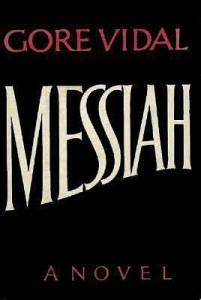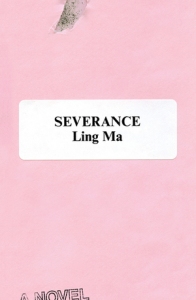Title: Messiah
Author: Gore Vidal
Genre: Classic/Satire
Trigger Warnings: Homophobia (mentions), internalized acephobia, death (mentions), suicidal ideation/suicide/death viewed as a desireable thing, alcohol use (mentions), car crash (mentions)
Note: Trigger warnings in DNF books only cover the part I read. There may be triggers further in the book that I did not encounter.
Read to: DNF on page 136
Back Cover:
When a mortician appears on television to declare that death is infinitely preferable to life, he sparks a religious movement that quickly leaves Christianity and most of Islam in the dust. Gore Vidal’s deft and daring blend of satire and prophecy, first published in 1954, eerily anticipates the excesses of Jim Jones, David Koresh, and the Heaven’s Gate suicide cult.
Review:
I really thought a book about a guy supporting the founder of a modern death cult would be good. I thought at least it would be interesting. I like reading books with excessive details about fictional religions, and the more weird, oddball, and cult-like the fictional religion, the better. I was excited about this book!
Yet somehow, this book about a modern suicide/death cult that becomes the biggest religion in the world was just dull. I got almost exactly halfway through it (136 pages out of 275 in my edition) waiting for it to pick up, and it never did. When I stopped, the promised TV appearance had just happened. Most of the story has been setup and backstory, but not about the mortician-prophet John Cave and his philosophy, or even what was going on in the world that would make the majority of people accept a death cult as the primary religion. Instead, it was about Eugene’s struggle to write a biography of Julian, the parties he went to and the people he talked to there, how the machinations of one acquaintance brought him into contact with John Cave, and his general skepticism about the whole thing.
And now a moment for some not-really-relevant character notes I think are worth mentioning: One side character claims to be over two thousand years old and nobody seems to think of that as anything more than a dubiously-plausible, but not impossible, oddity. It was a discordant magical-realism element in an otherwise classic-contemporary-satire story. Also, Eugene is on-page what we today would call asexual – explicitly not interested in sex, but still experiencing romantic attraction to women. Unfortunately, he views this as something “broken” about his ability to have relationships.
There’s also a secondary story set in the future. This book is written as Eugene, the protagonist, telling the story of how he met John Cave and helped him found his new religion, interspersed with snippets of his life as he is writing the story. But both are unfortunately dull. The future sections make it clear that Eugene had some kind of major split from the new religion of Cavesword and has spent several decades living in Egypt, where the Muslims work hard to keep the Cavite religion from entering. But that section was even less interesting, as Eugene is now an old man and spends most of his time tottering around his apartment and by turns talking with and avoiding a Cavite missionary recently arrived in the country.
There were a couple of reasons I think I struggled with this story. One is not at all the story’s fault – the edition I read appears to be from some kind of small independent press, which lead to a lot of small but annoying errors like missing closing quotations, missing periods at the end of sentences, and the occasional “I” replaced with “1”. A second reason is that the book was published nearly seventy years ago, and the style is definitely an older, denser, slower style than I’m used to – which is not necessarily a bad thing, but added an additional layer of distance to a narrative I was already struggling with. A third is that the story doesn’t write down anything John Cave actually says – there are scenes of him speaking, but the scene and mood of the audience is described in lieu of any actual words, and his ideas are filtered through others before being passed on to the reader. This guy is described as a hypnotic public speaker, a guy who can convince everyone he talks to that being dead is better than being alive, and yet his persuasive powers are filtered entirely through other people.
But I think the biggest issue was that the protagonist lacked passion. It’s told in first-person, and yet there wasn’t a single thing that made Eugene feel an emotion. I can understand being skeptical or disillusioned, but there was no feeling behind it. When John Cave spoke and what he said thrilled everybody, Eugene says that it is mesmerizing without ever seeming mesmerized himself. The story covered both before he got really involved in Cavesword and after he had his falling-out with it, and it’s clear that he got deeply involved at one point, but neither narration indicates that he was anything more than a bored observer who drifted in because his close acquaintances were involved and then drifted back out again. As someone who has left a religion I wholeheartedly believed and was deeply involved in, I didn’t get the sense even from the future narration that Eugene was ever much more than a moderately disinterested but useful observer to this forming cult.
The ideas here were good, but the story felt flat and lifeless to me. I think the idea of a death cult becoming the dominant global religion is fascinating. I just couldn’t suspend my disbelief that everyone would buy that immediately, so I think there needs to be some more societal context there. I also think it would have been better with a more dynamic, passionate protagonist, or at least a protagonist who felt like he actually believed in the new religion’s teachings. Or it could just be that I’m not very experienced with reading satire and I’m totally missing everything. Regardless, I don’t find it interesting enough to continue.


